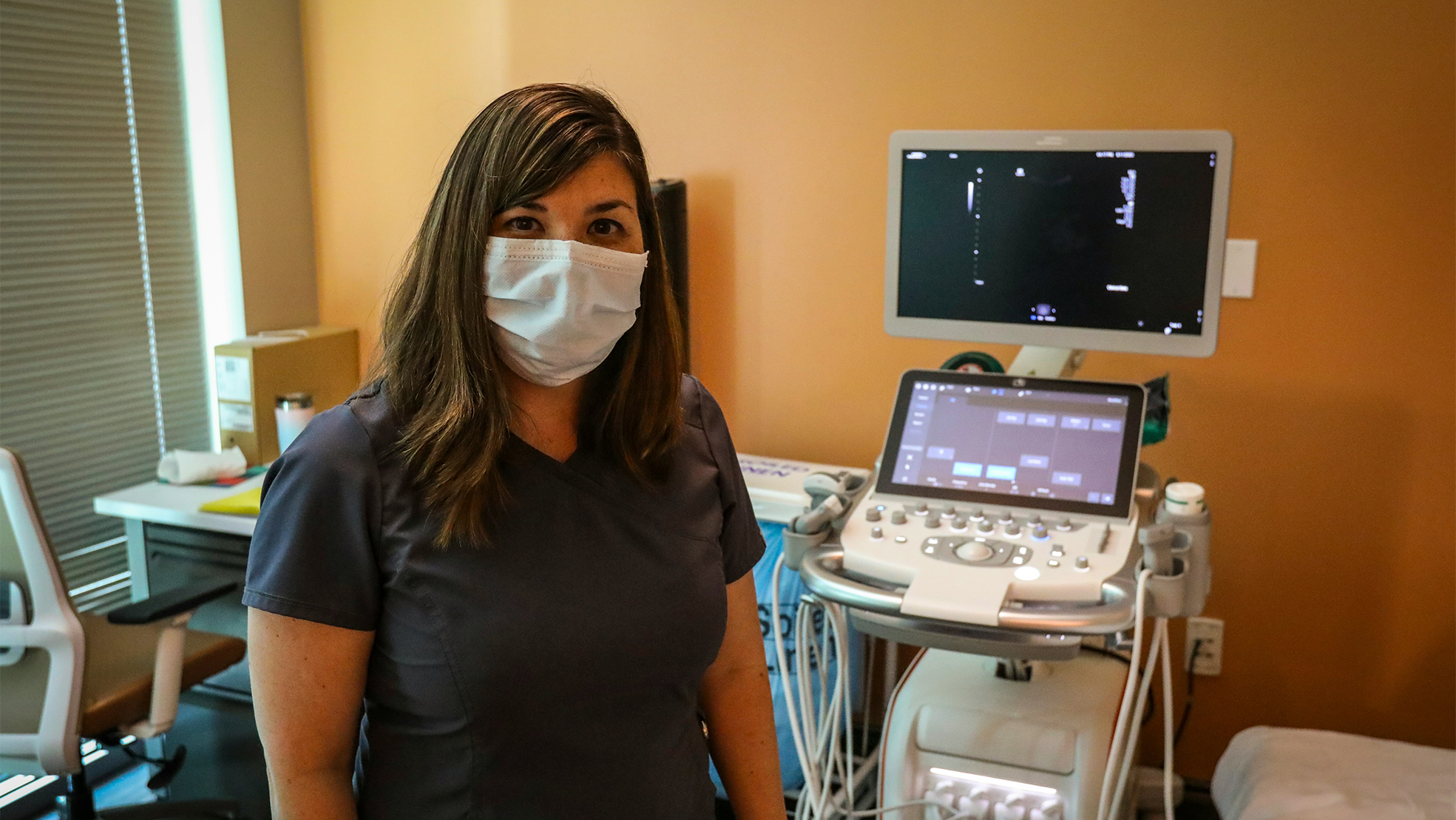Finding a Supportive Community During Pregnancy

Finding a Supportive Community During Pregnancy
Pregnancy can feel overwhelming—especially if you’re facing it alone, unexpectedly, or without a clear plan.
Whether you’re unsure of your next step or simply feeling isolated, one of the most powerful things you can do is surround yourself with people who will support you, encourage you, and walk with you through the journey ahead.
Why Community Matters
When you’re pregnant, you’re not just preparing for the birth of a child—you’re navigating emotional, physical, and often spiritual changes. In times like this, support can make all the difference.
Here’s why:
- Emotional Stability: Having people to talk to and share your fears with can lower stress and improve your overall mental health.
- Practical Help: A strong community can provide everything from diapers and wipes to transportation and meals.
- Spiritual Encouragement: For many, connecting with others in a faith-based setting brings peace and a renewed sense of purpose.
- Confidence and Education: Parenting classes and support groups can help you feel more equipped and less alone.
What to Look for in a Supportive Community
Not all support is the same. Look for a space that offers:
- Consistency – regular meeting times and dependable communication
- Judgment-free environment – especially if you’re unsure about your decisions
- Resources – parenting classes, baby items, or emotional support
- Faith or values alignment – if that’s important to you
Local Support in Hattiesburg, MS
If you’re in the Hattiesburg area, Hope Clinic offers several support groups designed specifically for women and families navigating pregnancy and early parenting:
-
Flourish
- Parenting classes, devotions, and access to the Baby Boutique
- Earn points for essentials like baby supplies
- Childcare provided
- For parents of children unborn to age 3
- Meets 2nd and 4th Tuesdays at 9:30 AM and 6 PM
-
Single Mom University
- Small group devotion time exclusively for single moms
- Free diapers and wipes
- Childcare provided
- Meets 1st and 3rd Tuesdays at 6 PM
-
Bread of Life Bible Study
- Bible study in a small group format
- Free diapers and wipes
- Childcare provided
- Meets 1st and 3rd Mondays at 5 PM
- Evening classes run February–May and September–December
Need Support Today?
If you’re unsure what your next step should be or want to learn more about local resources, Hope Clinic is here for you.
Whether you’re looking for pregnancy testing, consultations, or just someone to talk to—we offer compassionate, confidential care.
No matter which option feels right for you, Hope Clinic is here as a caring, non-judgmental resource. We provide free pregnancy testing, options counseling, and accurate information to help you confidently move forward during this life-changing time. You don’t have to navigate this alone – schedule a private appointment today.
Contact us at:
📞 Call Us: 601.264.2181
📍 808 S. 28th Ave., Hattiesburg, MS
You’re not alone. Support is here—and it starts with a simple conversation.
601.264.2181
Coping with Uncertainty: Strategies for Dealing with an Unplanned Pregnancy

Coping with Uncertainty: Strategies for Dealing with an Unplanned Pregnancy
Finding out you’re pregnant unexpectedly can feel overwhelming, especially as a teenager. If you’re experiencing a range of emotions right now – from fear and anxiety to confusion and uncertainty – know that these feelings are completely normal.
This guide offers practical strategies to help you navigate this challenging time and take care of your mental and emotional well-being.
Acknowledging Your Feelings
The first step in coping with an unplanned pregnancy is giving yourself permission to feel whatever emotions arise. There’s no “right” way to feel, and your emotions might change from day to day. Some common feelings include:
Anxiety about the future, fear of others’ reactions, confusion about your options, and uncertainty about your readiness for such a significant life change. Remember that experiencing these emotions doesn’t mean you’re not strong – it means you’re human.
Immediate Steps for Self-Care
When feeling overwhelmed, these practical strategies can help you regain your emotional balance:
Deep breathing exercises: Try the 4-7-8 technique: inhale for 4 seconds, hold for 7, exhale for 8. This can help calm your nervous system when anxiety strikes.
Journaling: Write down your thoughts, fears, and questions. This can help you process your emotions and track your decision-making journey.
Regular physical activity: Even simple walks can reduce stress and improve your mood through natural endorphins.
Maintain routine: Keep up with normal daily activities as much as possible – this provides stability during uncertain times.
Building Your Support System
You don’t have to face this situation alone. Consider reaching out to:
A trusted adult: This could be a parent, school counselor, or other family member who can offer guidance and support.
Healthcare providers: Regular prenatal care is essential, regardless of your ultimate decision. Medical professionals can provide information and resources without judgment.
Professional counselors: Many specialize in helping young people navigate pregnancy decisions. They can offer unbiased support and coping strategies.
Making Informed Decisions
While this guide focuses on coping strategies, it’s important to:
Take time to gather information about all your options. Avoid rushing into decisions due to pressure from others. Seek accurate medical and legal information from reliable sources. Consider both immediate and long-term implications of different choices
Practical Ways to Manage Daily Life
Break tasks into smaller steps: If thinking about the future feels overwhelming, focus on what you can do today or this week.
Create a daily self-care routine: Include adequate rest, healthy meals, and moments of relaxation.
Use organizational tools: Keep track of appointments and tasks with a planner or phone app to help maintain a sense of control.
When Anxiety Becomes Overwhelming
Learn to recognize when you need extra support:
Physical signs of stress: headaches, trouble sleeping, changes in appetite Emotional signs: persistent worry, difficulty concentrating, feeling hopeless When to seek help: if these symptoms persist or interfere with daily life
Looking Forward
Remember that this period of uncertainty won’t last forever. Focus on:
- Taking one day at a time
- Celebrating small victories and moments of strength
- Building resilience through healthy coping mechanisms
- Setting realistic goals for yourself
Resources and Support
Remember, seeking help is a sign of strength, not weakness. Whether you need someone to listen without judgment or professional guidance to help you cope, support is available.
No matter which option feels right for you, Hope Clinic is here as a caring, non-judgmental resource. We provide free pregnancy testing, options counseling, and accurate information to help you confidently move forward during this life-changing time. You don’t have to navigate this alone – schedule a private appointment today.
The Truth About Buying the Abortion Pill Online

If you’re considering an abortion, whether through ordering pills online or traveling out of state, it’s important to ask yourself one crucial question: Do you know how far along you really are? Knowing the gestational age of your pregnancy is a critical step before making any decisions. Here’s why getting an ultrasound should be your first priority.
1. The Dangers of Ordering Abortion Pills Online
Ordering abortion pills online may seem like a convenient option, but it comes with serious risks. The truth is, you might not get what you ordered. Pills sold online can be counterfeit, contaminated, or mislabeled. Without proper regulation, there’s no guarantee that the pills you receive are safe or effective.
Taking unknown substances can put your health in danger, especially if they are not the correct dosage or type of medication for your pregnancy stage. This is why confirming your pregnancy details with a healthcare provider before taking any steps is so important.
2. Not Knowing How Far Along You Are Could Be Dangerous
Without an ultrasound, you can’t be sure how far along you are in your pregnancy. The abortion pill is typically only approved for use in early pregnancy (up to 10 weeks). If you’re further along than you think, the pills may not be effective, or worse, they could lead to serious complications, including incomplete abortion and infection. An ultrasound will help you know exactly where you are in your pregnancy, so you can make an informed decision.
3. Traveling Out of State? Consider the Risks
Traveling out of state for an abortion might seem like a simple solution, but it comes with its own set of challenges. Not only will you need to arrange transportation and time off, but it could also become an emotional and physical burden. Recovery from an abortion, whether surgical or medical, requires rest and access to follow-up care. Traveling far from home may limit your ability to access the care you need afterward.
Pre-Abortion Consultation at Hope Clinic
Before you make any decisions, we encourage you to schedule a free pre-abortion consultation at Hope Clinic. We understand that unplanned pregnancies can be overwhelming, and we’re here to provide you with the information and support you need to make the best choice for your situation. Our consultations are confidential, non-judgmental, and focused on your well-being.
What Our Free Consultation Includes:
- Free Pregnancy Test: We confirm your pregnancy with a lab-quality test to ensure accurate results.
- Ultrasound (if eligible): If your test is positive, we may provide a free ultrasound to check the health, viability, and gestational age of your pregnancy.
- Walkthrough of Your Options: We’ll carefully explain all your options, including parenting, adoption, and abortion, so you have the full picture before making a decision.
- Resource Connections: From medical care to financial assistance, we can connect you with the support you need.
At Hope Clinic, you don’t have to face this journey alone. Schedule your free consultation today and get the answers you need.
We’re Here For You For almost a decade, Hope Clinic has been helping women like you navigate tough decisions with care and compassion. You don’t have to make this choice in isolation. Let us walk with you through this process.
Here’s What One of Our Patients Had to Say:
“When I found out I was pregnant, I didn’t know what to do. I was scared and overwhelmed, but the staff at Hope Clinic were so supportive. They walked me through all my options and made sure I had the resources I needed. I never felt judged, only cared for.” – Anna
No matter which option feels right for you, Hope Clinic is here as a caring, non-judgmental resource. We provide free pregnancy testing, options counseling, and accurate information to help you confidently move forward during this life-changing time. You don’t have to navigate this alone – schedule a private appointment today.
Before You Order the Abortion Pill Online or Travel Out of State for an Abortion

If you’re considering an abortion, whether through ordering pills online or traveling out of state, it’s important to ask yourself one crucial question: Do you know how far along you really are? Knowing the gestational age of your pregnancy is a critical step before making any decisions. Here’s why getting an ultrasound should be your first priority.
1. The Dangers of Ordering Abortion Pills Online
Ordering abortion pills online may seem like a convenient option, but it comes with serious risks. The truth is, you might not get what you ordered. Pills sold online can be counterfeit, contaminated, or mislabeled. Without proper regulation, there’s no guarantee that the pills you receive are safe or effective.
Taking unknown substances can put your health in danger, especially if they are not the correct dosage or type of medication for your pregnancy stage. This is why confirming your pregnancy details with a healthcare provider before taking any steps is so important.
2. Not Knowing How Far Along You Are Could Be Dangerous
Without an ultrasound, you can’t be sure how far along you are in your pregnancy. The abortion pill is typically only approved for use in early pregnancy (up to 10 weeks). If you’re further along than you think, the pills may not be effective, or worse, they could lead to serious complications, including incomplete abortion and infection. An ultrasound will help you know exactly where you are in your pregnancy, so you can make an informed decision.
3. Traveling Out of State? Consider the Risks
Traveling out of state for an abortion might seem like a simple solution, but it comes with its own set of challenges. Not only will you need to arrange transportation and time off, but it could also become an emotional and physical burden. Recovery from an abortion, whether surgical or medical, requires rest and access to follow-up care. Traveling far from home may limit your ability to access the care you need afterward.
Pre-Abortion Consultation at Hope Clinic
Before you make any decisions, we encourage you to schedule a free pre-abortion consultation at Hope Clinic. We understand that unplanned pregnancies can be overwhelming, and we’re here to provide you with the information and support you need to make the best choice for your situation. Our consultations are confidential, non-judgmental, and focused on your well-being.
What Our Free Consultation Includes:
- Free Pregnancy Test: We confirm your pregnancy with a lab-quality test to ensure accurate results.
- Ultrasound (if eligible): If your test is positive, we may provide a free ultrasound to check the health, viability, and gestational age of your pregnancy.
- Walkthrough of Your Options: We’ll carefully explain all your options, including parenting, adoption, and abortion, so you have the full picture before making a decision.
- Resource Connections: From medical care to financial assistance, we can connect you with the support you need.
At Hope Clinic, you don’t have to face this journey alone. Schedule your free consultation today and get the answers you need.
We’re Here For You For almost a decade, Hope Clinic has been helping women like you navigate tough decisions with care and compassion. You don’t have to make this choice in isolation. Let us walk with you through this process.
Here’s What One of Our Patients Had to Say:
“When I found out I was pregnant, I didn’t know what to do. I was scared and overwhelmed, but the staff at Hope Clinic were so supportive. They walked me through all my options and made sure I had the resources I needed. I never felt judged, only cared for.” – Anna
No matter which option feels right for you, Hope Clinic is here as a caring, non-judgmental resource. We provide free pregnancy testing, options counseling, and accurate information to help you confidently move forward during this life-changing time. You don’t have to navigate this alone – schedule a private appointment today.
Why Taking the Abortion Pill is an Emotional Decision
The decision to take the abortion pill is often fraught with complex emotions. For someone facing an unintended pregnancy, terminating it through medication abortion can bring up intense feelings that should be processed carefully before moving forward.
From past experiences to social pressures, many factors can shape how one feels about taking the abortion pill. By reflecting deeply on all aspects of the decision, a person can prepare emotionally for this profound choice.
Previous Experiences With Pregnancy
If someone has been through an abortion before, whether with the pill or a surgical procedure, that experience can significantly impact their feelings this time around. They may still carry grief, regret, or trauma from their past decision that makes them hesitant to terminate again. Or they may feel confident that abortion was the right choice for them previously.
A prior miscarriage can also lead to mixed emotions. Fear, sadness, or relief may be associated with that loss that resurfaces. The desire to avoid another painful miscarriage could sway them to take the pill, while still mourning their past loss.
Even a previous full-term pregnancy that resulted in the joyful birth of a child can shape one’s perspective on terminating. The bond formed with their child may motivate them to continue the
current pregnancy. Yet it may also strengthen their conviction that they can only emotionally and financially support their existing children.
Forming Attachment in Early Pregnancy
Even in the first trimester, only weeks into pregnancy, the beginnings of attachment can start forming between the parent and embryo/fetus. Ultrasounds make that connection more vivid. Knowing that their pregnancy has progressed to the point of detecting a heartbeat or early physical developments can spark maternal or paternal instincts.
This natural attachment can cause hesitation or regret about interrupting this process. However, it’s important to reflect on whether carrying to term is feasible or aligns with one’s broader goals. The attachment and wonder of pregnancy are normal, but ultimately, the decision must be what is right for the potential parents.
Influence From Partners and Family
In an unintended pregnancy, the opinion of one’s partner is highly significant. Their viewpoint, whether in favor of abortion or against it, can powerfully sway emotions. If a partner adamantly opposes terminating, it may stir up feelings of shame, isolation, and anxiety. Their disapproval could also breed resentment and anger if one feels forced to continue a pregnancy without their full support.
Pressure from certain family members or friends to abort – or to keep the pregnancy – can also cloud one’s decision making. This outside influence naturally adds layers of complexity to the choice. One must filter these perspectives through the lens of what ultimately feels right for oneself.
Fear of Making the Wrong Choice
Undoubtedly, the sheer weight of deciding the fate of one’s pregnancy is emotionally daunting. Fears of regretting the decision or causing irreparable harm are valid. Simply put, determining whether to take the abortion pill or progress with a pregnancy carries tremendous consequences.
This uncertainty can paralyze some and prolong their choice or lead to inaction. However, dwelling endlessly on hypotheticals about the future often leads to anxiety rather than clarity. Once all factors are thoughtfully considered, one must make peace with the imperfect nature of any major life decision.
Cultural Context and Social Stigma
The cultural background and societal norms someone grew up with substantially impact their views on abortion. Cultures, where abortion is highly taboo and socially unacceptable, instill values from a young age that abortion is immoral or even sinful. Under this paradigm, terminating a pregnancy generates much inner turmoil and shame.
Conversely, in societies where abortion access is respected as vital healthcare, the decision involves fewer ingrained value judgments. Still, the choice remains deeply personal, factoring in one’s community, faith, and cultural identity. Navigating any dissonance between these influences and one’s beliefs around reproductive rights adds another layer of complexity.
Above all, while outside perspectives must be sensitively considered, the ultimate decision lies with the person carrying the pregnancy. After exploring their emotions and social context, they alone can determine the right choice regarding taking the abortion pill. While complex, there are healthy resources to support individuals through this profound decision in a balanced, empowering way. With compassion and understanding, they can find clarity within their own heart.
Importance Of An Ultrasound For Your Pregnancy
One of the most magical moments of pregnancy is getting your first glimpse of your baby on the ultrasound. Seeing those little arms and legs makes your pregnancy suddenly feel real! The ultrasound technician will point out your baby’s features so you can marvel at this little life you’ve created.
Ultrasounds use sound waves to create images of your baby in the womb. It looks like a little grey-and-white photo, but you’ll clearly see their profile and movements. The excitement and joy of this experience really can’t be described, it has to be felt!
Confirming Your Baby is Developing Properly
In addition to bonding with your baby, ultrasounds serve important medical purposes. They allow doctors to check that your baby is growing correctly and that their organs are forming as expected.
The technician will measure the size of the head, limbs, and torso to ensure your baby is on track developmentally. They’ll also check for a steady heartbeat, eye formation, spinal development, and more.
As a mom, you’ll likely feel some anxiety about your baby’s health. But you can relax knowing your doctors are closely monitoring your little one’s progress!
Estimating Your Due Date
One of the first things an early ultrasound will do is estimate how far along you are based on your baby’s size. This gives you and your doctor a better sense of your due date so you can plan accordingly.
Knowing your due date also tells you what milestones your baby should be hitting at certain points. You can track their fetal development week-by-week and know what to expect at each ultrasound. This takes some of the guesswork out of pregnancy so you can feel more confident.
Pregnancy Due Date Calculator
Monitoring Your Amniotic Fluid Levels
In addition to checking on your baby, ultrasounds keep an eye on your amniotic fluid levels. Amniotic fluid is the protective cushion of fluid that surrounds your baby in the womb.
Too little fluid can limit your baby’s movement and growth. Too much fluid can cause complications. The ultrasound technician will measure the depth of your fluid to ensure you’re in the normal range. Proper fluid levels are essential for your baby’s development.
Examining the Placenta
The placenta is the vital organ that provides your baby with nutrients and oxygen. Ultrasounds allow doctors to evaluate the placenta’s size, shape, location, and health.
They specifically check that the placenta is not covering your cervix, which is called placenta previa. Placenta previa can cause bleeding and complications as you near delivery. Identifying it early with an ultrasound gives doctors time to prepare and monitor you.
Providing Reassurance and Empowerment
Being a mom means having a lot of questions about what’s happening inside your changing body. Ultrasounds provide visual information to demystify pregnancy and empower you.
Instead of wondering how your baby is positioned, you can see their head down near your pelvis. Rather than guessing if their heart is beating steady, you can hear it and see it pulsing.
This invaluable insight will provide comfort and confidence for the months ahead. You’ll walk out of each ultrasound feeling more knowledgeable about your baby and assured of their wellbeing.
In summary, ultrasounds are a vital tool for monitoring your baby, planning your care, and bonding with your little one. As an expectant mother, be grateful for this amazing technology that allows you to see into the womb. Let the beauty of life guide you through your pregnancy journey.
The Abortion Pill: Understanding the Potential Risks
It’s not a Magical Pill.
As with any medication you choose to take, they all come with side effects. And with the Abortion Pill, the potential risks may cause irreversible damage to your body and mental health. Before taking the Abortion Pill, take the time to learn about the side effects.
Confirming How Far Along You Are
It is important to first confirm how far along you are in your pregnancy, usually through an ultrasound. The abortion pill is only approved for pregnancies up to 10 weeks gestation. Taking it beyond 10 weeks significantly increases the chance of complications such as incomplete abortion, excessive bleeding, and infection. Discuss your options with your healthcare provider to determine the appropriate course based on the stage of your pregnancy.
Considering Proximity to Medical Care
While the abortion pill is often taken at home, it is still a significant medical procedure that requires supervision. You should consider your proximity to emergency care in case excessive bleeding or other severe complications occur. It is advisable to have someone you trust with you for at least 24 hours after taking the pills to monitor for adverse reactions. Living far from a hospital or clinic can endanger your health if urgent care is needed. Discuss access to support and medical services in your area beforehand.
Watching for Signs of Infection
There is a risk of bacterial infection if any fetal tissue remains in the uterus after taking the abortion pill. Symptoms of a serious infection include high fever, foul-smelling vaginal discharge, severe cramping, and abdominal pain. Such infections can quickly become life-threatening if left untreated. It is extremely important to follow up with your healthcare provider 1-2 weeks after a medical abortion to ensure the procedure is fully complete. Call your doctor right away if you experience any potential signs of infection.
Expecting Bleeding and Cramping
Bleeding and cramping are common and expected side effects of the abortion pill as the pregnancy passes. However, if you soak more than 2 menstrual pads per hour for 2 hours in a row, this indicates excessive hemorrhaging that requires prompt emergency medical care. You should seek immediate assistance if you experience dizziness, weakness, or heavy bleeding between periods.
Considering Risks if You Have an STD
Using the abortion pill when you have an untreated sexually transmitted disease, especially chlamydia, substantially heightens the chance of developing pelvic inflammatory disease (PID) after the procedure. PID is an infection of the reproductive organs that can lead to scarring, chronic pelvic pain, formation of abscesses, impaired fertility, and other lasting consequences. Get tested for STDs before considering the abortion pill so any necessary treatment can be provided first.
Being Aware of Potential Emotional Effects
Some women experience depression, anxiety, regret, or trauma after having an abortion. The mix of hormonal changes and complex emotions can take a toll on mental health. Reflect carefully on how ending your pregnancy could impact you, and surround yourself with supportive friends, family, or professionals in your life. Take time to process your emotions and seek counseling if needed.
Understanding Future Fertility Implications
In rare cases, usually when there is a pre-existing infection, the abortion pill can cause scarring of the uterine lining. This may negatively impact future fertility and increase the risk of miscarriage or ectopic pregnancy with future conceptions. If you hope to have children later, discuss this uncommon side effect with your obstetrician or gynecologist beforehand.
Exercising Caution with Certain Conditions
According to the Mayo Clinic, those with intrauterine devices (IUDs), allergies to the medications, or certain disorders involving the heart, liver, kidneys, or blood vessels may face higher risks of complications with the abortion pill. It may be contraindicated. Your doctor can best advise you based on your specific medical history.
Making the Best Choice for You
Pause, don’t make a decision based on fear or overwhelming emotions. Arm yourself with information about the potential risks, benefits, emotional aspects, and alternatives. Consult medical professionals about your specific health circumstances. You have the power to make the choice that provides the greatest care for both your pregnancy and yourself.
If you think you may be pregnant, and are considering abortion? Schedule an appointment at Hope Clinic. You have options.
How to Figure Out Your Conception Date
Are you curious to know what day you became pregnant?
It might seem a bit complex, but figuring out your conception date is easy. Even if you’ve had multiple partners or several instances of intercourse, calculating your estimated date of conception is possible with just a little thinking. Here are three ways to calculate your conception date:
Count Back From Your Last Period
If you have pretty regular monthly cycles, you can use the start date of your last period to make an educated guess about conception. Here’s how:
Take the first day of your most recent period and count ahead 11-21 days. That’s your conception window! The average menstrual cycle is 28 days, with ovulation typically happening around day 14. Sperm can survive for 3-5 days, which means you can get pregnant on a day you didn’t have sex, so days 11-21 cover all the conceiving bases.
For example, if your last period began May 1st, your conception likely happened between May 12-22. Easy peasy!
Subtract 40 Weeks from Your Due Date
Don’t remember the exact date of your last menstrual cycle? No worries! If you have an estimated due date from your doctor, you can work backward.
Take your due date and subtract 40 weeks – this gives you the approximate first day of your last period. Then, use the 11-21-day conception window trick above.
Say your due date is January 15th. Subtract 40 weeks, and your last period likely started around April 25th. Add 11-21 days; your conception window is May 6-16. See, you got this!
Do the Time Warp with Your Gestational Age
One more option if you’re unsure of dates – use your current gestational age, a.k.a. how far along you are.
Simply take the number of weeks you are currently pregnant and subtract that amount from today’s date. This gives you the first day of your last menstrual cycle. Then apply the 11-21 day rule.
For example, you’re 18 weeks pregnant on August 1st. Subtract 18 weeks, and your last cycle started around March 25th. So, your conception window was April 5-15.
There you have it! Three fun ways to get the down low on when your little bun first joined the party. Hopefully, these tips will help you feel even more connected to your pregnancy journey.
Looking for help with your conception date? Get an accurate estimated conception date by scheduling an appointment with Hope Clinic today!
The Abortion Pill: Understanding the Potential Risks
Confirming How Far Along You Are
It is important to first confirm how far along you are in your pregnancy, usually through an ultrasound. The abortion pill is only approved for pregnancies up to 10 weeks gestation. Taking it beyond 10 weeks significantly increases the chance of complications such as incomplete abortion, excessive bleeding, and infection. Discuss your options with your healthcare provider to determine the appropriate course based on the stage of your pregnancy.
Considering Proximity to Medical Care
While the abortion pill is often taken at home, it is still a significant medical procedure that requires supervision. You should consider your proximity to emergency care in case excessive bleeding or other severe complications occur. It is advisable to have someone you trust with you for at least 24 hours after taking the pills to monitor for adverse reactions. Living far from a hospital or clinic can endanger your health if urgent care is needed. Discuss access to support and medical services in your area beforehand.
Watching for Signs of Infection
There is a risk of bacterial infection if any fetal tissue remains in the uterus after taking the abortion pill. Symptoms of a serious infection include high fever, foul-smelling vaginal discharge, severe cramping, and abdominal pain. Such infections can quickly become life-threatening if left untreated. It is extremely important to follow up with your healthcare provider 1-2 weeks after a medical abortion to ensure the procedure is fully complete. Call your doctor right away if you experience any potential signs of infection.
Expecting Bleeding and Cramping
Bleeding and cramping are common and expected side effects of the abortion pill as the pregnancy passes. However, if you soak more than 2 menstrual pads per hour for 2 hours in a row, this indicates excessive hemorrhaging that requires prompt emergency medical care. You should seek immediate assistance if you experience dizziness, weakness, or heavy bleeding between periods.
Considering Risks if You Have an STD
Using the abortion pill when you have an untreated sexually transmitted disease, especially chlamydia, substantially heightens the chance of developing pelvic inflammatory disease (PID) after the procedure. PID is an infection of the reproductive organs that can lead to scarring, chronic pelvic pain, formation of abscesses, impaired fertility, and other lasting consequences. Get tested for STDs before considering the abortion pill so any necessary treatment can be provided first.
Being Aware of Potential Emotional Effects
Some women experience depression, anxiety, regret, or trauma after having an abortion. The mix of hormonal changes and complex emotions can take a toll on mental health. Reflect carefully on how ending your pregnancy could impact you, and surround yourself with supportive friends, family, or professionals in your life. Take time to process your emotions and seek counseling if needed.
Understanding Future Fertility Implications
In rare cases, usually when there is a pre-existing infection, the abortion pill can cause scarring of the uterine lining. This may negatively impact future fertility and increase the risk of miscarriage or ectopic pregnancy with future conceptions. If you hope to have children later, discuss this uncommon side effect with your obstetrician or gynecologist beforehand.
Exercising Caution with Certain Conditions
According to the Mayo Clinic, those with intrauterine devices (IUDs), allergies to the medications, or certain disorders involving the heart, liver, kidneys, or blood vessels may face higher risks of complications with the abortion pill. It may be contraindicated. Your doctor can best advise you based on your specific medical history.
Making the Best Choice for You
Pause, don’t make a decision based on fear or overwhelming emotions. Arm yourself with information about the potential risks, benefits, emotional aspects, and alternatives. Consult medical professionals about your specific health circumstances. You have the power to make the choice that provides the greatest care for both your pregnancy and yourself.
How To Tell Your Parents You're Pregnant
So you’ve taken a pregnancy test – or three. Perhaps you even came into our center for a free ultrasound to confirm. Now you’re faced with one of the hardest challenges of all: telling your parents you’re pregnant.

No teen or young adult wants to go through this situation, but it still happens to thousands every year. The combination of feelings like guilt, shame, confusion, and anxiety can be paralyzing. However, the longer you put it off, the worse the situation becomes in many ways. That’s why we’ve put together this simple, private guide for telling your parents about your pregnancy.
Sooner is Better
If there’s one thing for sure about telling your parents, it’s that sooner is always better. The longer you wait to tell your parents about your pregnancy, the more complications and difficulties can arise. Often, waiting to tell your family causes stress and anticipation – which is exactly what you don’t want in early pregnancy. Plus, in many cases, the reaction we imagine is much worse than the reaction we actually get. It’s best to tell your parents soon and start working out your next steps.
Telling Others First Can Make it Easier
If you’re worried about how your parents will react, you can choose to confide in others first like a sibling, close friend, or other relative. This can be a good way to “test the waters” and gauge how your parents may react. It can also help relieve some of the stress and anxiety of keeping a huge secret, making the telling itself easier to do.
Make Sure They’re Prepared
Obviously, very few parents are ready to hear that their child is pregnant unexpectedly. But you can soften the impact by making sure they hear the news in a comfortable setting. Don’t blurt it out in passing or while you’re in a public place, and don’t tell them in anger or out of fear. Now is the time for a rational adult conversation, and that means approaching your parents in an adult way.
Anticipate and Accept Their Feelings
It’s likely that your parents will be angry, disappointed, or confused by the news. This isn’t ideal for you, but it is expected. Remember, your parents are people too, and they have their own plans and goals. They might even say something that is mean or hurtful – and so might you. But it’s important not to let this conversation become an argument. You’re all in this together, and you need to support and respect each other to make it through.
Don’t Make Any Decisions Yet
Your parents might start talking about getting an abortion or placing the baby for adoption when you tell them. However, it’s important not to make any rash decisions right away. Make sure everyone is calm and composed before talking about your options and discussing what you actually want. Furthermore, remember that nobody – not even your parents – can make these decisions for you. If you aren’t comfortable with their choices or reasoning, don’t let them pressure you.
In a time like this, you might be surprised by how well your parents take the news. On the other hand, not all parents will react the same way, and there is always a chance that your parents might react badly. If you find yourself in a bad situation after you tell your parents, remember that there are other places to get help and support. However, you still need to get through this initial conversation first.
Need more help or advice? Call Hope Clinic today. We can talk to you, listen to you, and help you decide the best course of action. Call 601-264-2181 to make an appointment or text us at 669-500-TEST (8378). We’re here and ready to listen, so get in touch any time.





